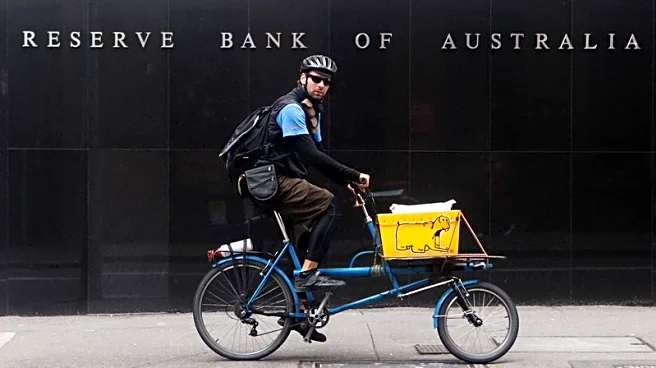SYDNEY, November 18 (Reuters) - Australia's central bank said on Tuesday that it could keep holding the cash rate at the current level if incoming data surprises on the strong side, but there are also
scenarios where it sees more policy easing.
Minutes of its November 3-4 policy meeting showed the Reserve Bank of Australia board judged the current cash rate of 3.6% as being slightly restrictive, but said it was possible this was no longer the case, citing the jump in housing credit to investors.
The board noted several factors that could lead it to hold the cash rate steady, including data suggesting the recovery in demand is stronger than expected or persistently high inflation.
"Members determined that they could afford to be patient while assessing what the incomeing data reveal about their judgements on the extent of spare capcity, the outlook for the labour market and the degree of restrictiveness of monetary policy."
The RBA held policy steady this month after three rate cuts this year, saying it was cautious about easing further given higher inflation, firmer consumer demand and a revival in the housing market.
A surprisingly high third-quarter inflation reading meant the central bank now saw inflation stuck above the 2-3% target band until mid-2026 and settling at 2.6%, above the 2.5% mid-point of its target range.
Concerns about the labour market proved to be overblown, after employment roared back in October and the jobless rate fell back to 4.3%. That led markets to price out the chance of any more policy easing from the RBA, with a move in May next year just priced at 40%.
Still, there are scenarios in which monetary policy may need to be eased further, said the RBA, citing the possibility that the labour market weakens materially or the recovery in the economy lags behind.
The board noted that it was not possible to be confident about which scenario was most likely to happen, reiterating that they will remain cautious and data dependent.
Reporting by Stella Qiu, editing by Alasdair Pal
Keywords: AUSTRALIA ECONOMY/RBA










